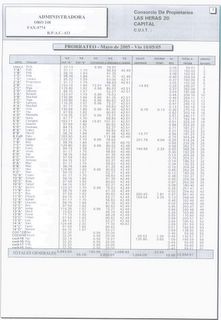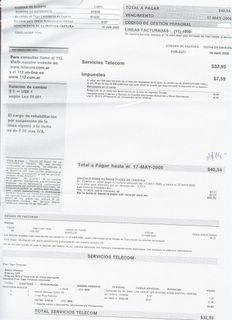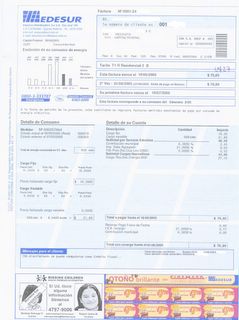Capital Gains Taxes when Selling

Capital Gains Taxes when selling

One of the true benefits of exiting your investment and selling your property once you want to sell it is that there is a 0% Capital gains tax here in Buenos Aires. Yes, you read correctly. There is no capital gains tax. There is a 1.5% tax called the "Transfer tax". It is 1.5% of the sales price listed on the title deed. Locals can get this waived if they are using the proceeds immediately and purchasing another property here in Buenos Aires. For foreigners it's almost impossible to get the 1.5% transfer tax waived so expect to pay this when you sell.
Remember that the 0% Capital gains tax is only if you purchased the property as an individual. If you purchased the property as a corporation, your capital gains tax is as high as 35% of the capital gain on the real estate transaction.
People often ask me why a country that is in desperate need of cash does not have a capital gains tax. You have to keep in mind the system here. As I mentioned earlier in my report, the one thing the affluent have in common is that they own multiple properties.
The other thing to keep in mind is that even if there was a capital gains tax, the locals are masters at tax evasion. I mentioned this before but I'll repeat it. Many locals do not report the actual purchase/sales price on the title deed. Many will only sell their property if you agree to record a false, lower amount. There is not a huge risk to you and in fact you will pay less property taxes but I recommend against this as the upside benefit is not significant.
Property is property though so when you go to sell it, odds are it will be sold for the going rate of the price per sq. meter and not the purchase price that you paid. This is just one of the examples of the "white" and the "black" system. The "black" system is so embedded into the society and especially the real estate community that sometimes it's impossible to avoid. I've walked away from several deals because the owners would not sell the property unless you recorded a much lower price on the title deed. I wasn't willing to do that.
Still, in each instance that I passed, another foreigner was happy to purchase the property. In fact, several times through 'it's a small world' - I have run into the buyers of each respective property and they are often surprised and amazed as I know the exact terms of their deals and what they falsely recorded the property for as I passed on the deal.
Keep in mind as a foreigner you also must get a special permit from the AFIP office when you decide to sell your property. You can't just sell your property when you are ready to sell if you don't have residency here. As long as you are up to date on all your tax obligations it will not be a problem. There is a mountain of paperwork that you will need to provide to get the permit. You must have an accountant working on your behalf to file for the permit.
AFIP will check to make sure you are up to date on your required asset/property tax (1.25% of the price listed on the title deed when you bought it) each year that you owned the property, as well as rental taxes if you have been renting out the property. I have seen it take as little as 30 days and as long as 75+ days so keep this in mind when you go to sell a property as a foreigner. You can't apply for the permit until you have an offer to purchase the property.
If you need a referral for an expert accountant, please email us as we work with the best accountants in Argentina that can usually get this permit in 30 days.
Remember that as a foreigner, you must have a local or a local Argentina corporation registered as your local tax representative. It's very important that you are up to date on all your required tax payments while you own your property. Many foreigners don't know all the tax requirements and they mistakenly think they are being taxed to sell when that is not true. They simply were not making the required tax payments so AFIP is requiring all back taxes plus penalties and interest fees.
Our office has handled several transactions for clients selling their properties. All our clients have successfully sold their properties as our office was also the registered agent on record for them and we have been paying their property/asset taxes each year as well as their rental income taxes. This has enabled them to successfully sell their property with no problems. There is a lot of misinformation out there about capital gains taxes or special taxes for foreigners. If you follow the law and pay your proper taxes, have a registered agent to pay your taxes then it will speed up the process and help eliminate problems. I have sold many properties here and by following the laws described above I have not had a problem and did not have to pay any penalties or additional taxes.
AFIP is also changing the way they deal with the locals as well. As I mentioned before, most locals are masters at evading taxes. Before November 1, 2006, a local owner of property at the closing could tell the Escribano (lawyer) that they are using the proceeds to purchase another property and avoid the 1.5% transfer tax. The law never made the Escribano ask for any kind of verification and most people didn't pay this 1.5% tax at the closing of their property. Now, when the sellers go to sell, unless they have a special permit from AFIP showing they are buying another property, the Escribano is obligated to withhold the 1.5% transfer tax at the closing. Also, many locals have never paid their asset taxes on their property and AFIP is cracking down to make sure they have paid all past asset taxes on their property.
Also, keep in mind there is 0% Capital Gains taxes only if you purchase as an individual. Many foreigners are advised to purchase as a Corporation but their lawyer or realtor never explained to them they will face a 35% Capital gains tax when selling if they purchase as a corporation. Keep this in mind when you go to purchase your property.
There is a stamp tax "impuesto de sellos" that is 2.5% when you go to purchase a property and it is split 50% with the buyer/seller. Each sides splits 1.25% for the seller and 1.25% with the buyer. Some sellers ask the buyer to pay for the entire stamp tax and they have that right. If nothing is specified on the offer, the tax is legally split between both parties.
For the most updated information and updates on tax laws, visit our direct website at www.mikesapartmentsba.com
© The content on our page is copyrighted material. Please do not try copying it and pasting it to your own website and trying to pass the content off as your own work. Please email us to request permission to repost the material and you must cite our website and President of our company as the source of the material.





